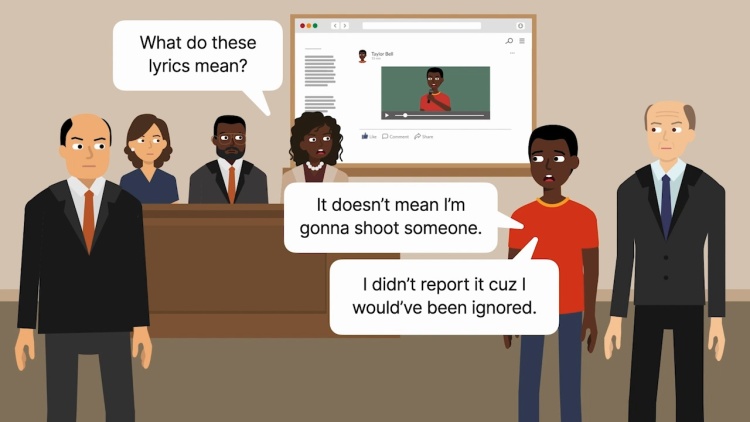Bell v. Itawamba County School Board
United States Court of Appeals for the Fifth Circuit
799 F.3d 379 (en banc) (2015)
- Written by Rose VanHofwegen, JD
Facts
While not at school, and without using any school resources, Taylor Bell (plaintiff) posted a rap recording on Facebook that contained language threatening two coaches at his high school and accusing them of misconduct with female students. The next day, school officials pulled Bell out of class, questioned him about the recording, and sent him home. While the school was closed for several days due to inclement weather, Bell finalized his recording and posted it on YouTube. The school disciplinary committee held a hearing, at which Bell admitted he intended the recording to reach the school community to bring awareness to the coaches’ misconduct. The committee found that publishing the recording amounted to harassment and intimidation of the two coaches and suspended Bell. Bell and his mother (plaintiff) sued the Itawamba County School Board (defendant), claiming that it violated Bell’s right to free speech. The trial court granted summary judgment for the school board, finding that the recording amounted to harassment and intimidation and possible threats against teachers. A divided panel of the appellate court reversed, finding the school board violated Bell’s free-speech rights by disciplining him based on the recording’s language. The appellate court granted en banc review.
Rule of Law
Issue
Holding and Reasoning (Barksdale, J.)
Concurrence (Costa, J.)
Concurrence (Elrod, J.)
Concurrence (Jolly, J.)
Dissent (Dennis, J.)
Dissent (Prado, J.)
Dissent (Graves, J.)
What to do next…
Here's why 907,000 law students have relied on our case briefs:
- Written by law professors and practitioners, not other law students. 47,100 briefs, keyed to 996 casebooks. Top-notch customer support.
- The right amount of information, includes the facts, issues, rule of law, holding and reasoning, and any concurrences and dissents.
- Access in your classes, works on your mobile and tablet. Massive library of related video lessons and high quality multiple-choice questions.
- Easy to use, uniform format for every case brief. Written in plain English, not in legalese. Our briefs summarize and simplify; they don’t just repeat the court’s language.





